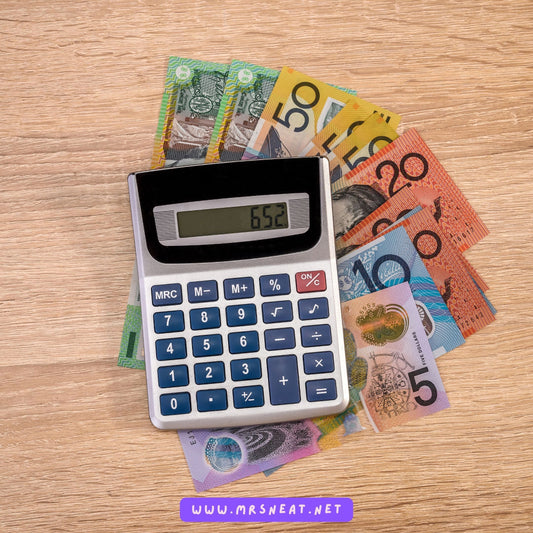
Traveling on a Budget: Tips and Tricks for Adventurers
maris wariShare
Exploring the world and experiencing new cultures does not have to be an expensive endeavor.
With careful planning, research, and a few tricks up your sleeve, you can enjoy incredible travels on a budget.

This article will guide you through the essential tips and strategies to make your dream adventure possible without breaking the bank.
1. Plan Ahead
One of the golden rules of budget travel is to plan your trip well in advance.
This applies to flights, accommodation, and activities.
By booking early, you can take advantage of discounted prices and avoid those last-minute, costly decisions.
2. Be Flexible with Travel Dates
If your destination and schedule allow for flexibility, you can save a considerable amount by travelling during off-peak seasons or on weekdays.
Flight and accommodation prices tend to be significantly cheaper outside of peak travel periods.
Additionally, booking your tickets in the middle of the week or during early morning or late-night departure times can yield considerable savings.
3. Compare Prices
As a budget traveler, it's crucial to take advantage of the multitude of online platforms available for comparing prices.
Utilize comparison websites for flights, accommodation, car rentals, and activities to ensure you're getting the best deals.
Don't forget to consider factors such as baggage fees, hidden charges, and proximity to public transportation when making your decisions.
4. Opt for Affordable Accommodation
Accommodation expenses can often eat up a significant portion of your travel budget.
To save money, consider staying in budget-friendly options such as hostels, guesthouses, or even camping if available.
Additionally, platforms like Airbnb offer affordable and often more authentic local stays.
5. Embrace Public Transportation
Public transportation is not only an affordable option but also an excellent way to immerse yourself in local culture.
Utilize buses, trains, trams, or even bicycles to get around your destination.
Some cities also offer discounted tourist travel cards that provide unlimited travel for a certain period, allowing you to explore without worrying about individual ticket costs.
6. Eat Like a Local
Eating out at local restaurants can be a fantastic culinary experience, but it's not always budget-friendly.
Balance your budget by occasionally opting for local street food, food markets, or grocery stores.
This allows you to enjoy delicious local cuisine without the hefty price tag.
7. Embrace Free or Low-Cost Activities
Research and embrace free or low-cost activities in your destination.
Take advantage of parks, museums with discounted or free entry days, walking or self-guided tours, and explore nature through hikes and scenic walks.
Engage with the locals to discover hidden gems that don't require digging deep into your pockets.
8. Travel Light and Smart
Avoid hefty baggage fees by packing light and smart.
Only bring essential items and research the baggage policies of your transportation provider.
Airlines often charge extra fees for oversized, overweight, or additional luggage, which can eat into your budget.
By packing efficiently, you'll save money and have more flexibility during your travels.
Traveling on a budget doesn't mean skimping on experiences or compromising on comfort.
By following these tips and tricks, you can embark on exciting adventures without straining your wallet.
Remember, careful planning, flexibility, and a willingness to explore local offerings will open the doors to a world of affordable adventures that will create cherished memories for years to come.
Here are 25+ hacks to help you travel on a budget:
- Travel during off-peak seasons: Prices for flights, accommodations, and attractions tend to be lower during off-peak seasons when there is less demand. Research the best time to visit your desired destination to snag great deals.
- Be flexible with your travel dates: Use flexible date search options on flight booking websites to compare prices across multiple days. Flying on weekdays or during midweek can often lead to significant savings.
- Use flight comparison websites: Sites like Skyscanner, Kayak, and Google Flights allow you to compare prices across different airlines and find the most affordable flights.
- Fly with budget airlines: Budget carriers often offer lower fares compared to traditional airlines. Keep in mind that they might have additional charges for services like baggage and in-flight meals, so read the fine print before booking.
- Book directly with hotels or through Airbnb: Booking accommodations directly with the hotel or through platforms like Airbnb can sometimes lead to better rates compared to using third-party booking sites.
- Stay in hostels or guesthouses: Hostels and guesthouses provide affordable accommodation options, especially for solo travelers or those on a tight budget. Many offer shared dorms or private rooms at reasonable rates.
- Research and utilize public transportation: Use local buses, trains, or trams to get around instead of relying on taxis or rental cars. Public transportation is usually cheaper and allows you to experience the local culture firsthand.
- Pack light: Avoid excess baggage fees by packing only the essentials. Check the baggage policies of your chosen airline and make sure your luggage meets their size and weight requirements.
- Cook or eat street food: Save money on meals by cooking your own food if you have access to kitchen facilities. Alternatively, explore local street food options, which often provide tasty and affordable dining experiences.
- Carry a reusable water bottle: Purchasing bottled water can quickly add up in popular tourist areas. Carry a reusable water bottle and refill it at water fountains or ask for tap water at restaurants to save money and reduce plastic waste.
- Take advantage of free walking tours: Many cities offer free walking tours led by knowledgeable local guides. These tours provide an excellent opportunity to explore the city's highlights while learning about its history and culture.
- Visit free attractions: Research and visit free attractions like parks, botanical gardens, or markets, which offer unique experiences without costing a dime.
- Look for discounted or free events: Check local event listings for free or discounted festivals, concerts, or cultural events happening during your visit. This allows you to immerse yourself in the local culture without breaking the bank.
- Earn travel points or use rewards credit cards: Sign up for a rewards credit card or a travel loyalty program to earn points that can be redeemed for free flights, hotel stays, or other travel-related benefits.
- Research currency exchange rates: Stay updated on currency exchange rates to get the best value when converting your money. Compare rates at multiple exchange offices, including those in your home country and your destination.
- Shop at local markets for souvenirs: Instead of buying souvenirs from touristy shops, visit local markets to find unique and affordable gifts. You can often negotiate prices, so don't be afraid to bargain.
- Utilize free Wi-Fi: Save money on data roaming charges by taking advantage of free Wi-Fi available in cafes, restaurants, libraries, or public spaces. Download offline maps and other useful apps beforehand.
- Choose destinations with a lower cost of living: Research destinations with a lower cost of living to stretch your travel budget. Consider places where your currency has a stronger value to make your money go further.
- Take advantage of discounts and coupons: Use travel apps, websites, and membership programs to find exclusive deals, discounts, and coupons for attractions, activities, and dining options.
- Consider group travel: Traveling in a group allows you to split the cost of accommodation, transportation, and meals. This can lead to significant savings and also create shared memories with your travel companions.
- Stay attentive to currency conversion rates: Keep an eye on currency conversion rates to avoid overspending or getting short-changed during transactions. Download a reliable currency converter app to stay informed.
- Research local transportation passes: Many cities offer transportation cards or tourist travel passes that provide unlimited rides for a certain period. Calculate if purchasing such a pass will save you money during your stay.
- Book refundable options, if possible: If your plans are not entirely certain, consider booking refundable accommodation or flexible flight options to avoid unnecessary cancellation fees.
- Take advantage of rewards programs: Join hotel loyalty programs or airline frequent flyer programs to accumulate points or miles with every booking. These can be redeemed for free stays or flights in the future.
- Do your own walking or biking tours: Instead of booking pricey guided tours, explore your destination on foot or rent a bike. It's a budget-friendly way to discover the city, and you can choose your own pace and itinerary.
- Utilize free travel apps: Download useful travel apps for navigation, language translation, currency conversion, and city guides. These apps can help you save time and money by providing valuable information at your fingertips.
- Join online travel communities and forums: Engage with experienced budget travelers on forums like Reddit, TripAdvisor, or travel blogs. You can get insider tips and advice on how to save money at your chosen destination.
- Prioritize your travel budget: Determine what experiences mean the most to you and allocate your budget accordingly. By focusing on your priorities, you'll be able to make the most of your funds.
- Avoid unnecessary expenses: Be mindful of overspending on non-essential items. Cut back on unnecessary indulgences and focus on experiences that enrich your trip.
By implementing these hacks, you can maximize your travel budget and experience incredible adventures without breaking the bank.
Also, you might try using an expense tracker printable that offer several benefits when it comes to tracking travel expenses. Let's delve into what the benefits it bring!
Related content;
- Master Your Finances: A Comprehensive Guide
- How Budget Planner save My Financial Life
- Master Your Finances with Our Monthly Budget Planner
Here are some advantages of using travel expenses tracker printable:
- Easy Organization: An expense tracker printable provides a structured and organized way to record and categorize your travel expenses. It allows you to have a clear overview of your spending and helps you stay on top of your budget.
- Financial Awareness: Tracking your travel expenses helps you become more aware of your spending habits and where your money is going. It allows you to identify areas where you may be overspending and make adjustments accordingly.
- Budget Control: By tracking your travel expenses, you can establish a realistic budget and stick to it. An expense tracker printable helps you monitor your spending against your budget and helps you make informed decisions while staying within your financial limits.
- Expense Accountability: Tracking expenses using a printable tracker holds you accountable for your spending. It prompts you to evaluate your choices and consider if the expense is necessary or if there are more cost-effective alternatives.
Now, I'll share about how to track travel expenses using a travel expense tracker printable:
- Download or Create a Printable Tracker: Download travel expense tracker printable here. This Printable includes categories for various expenses such as transportation, accommodation, food, activities, and miscellaneous.
- Start with Pre-Travel Planning: Before your trip, estimate how much you expect to spend. Calculate a total budget for all aspect of your trip, such as flights, accommodation, and daily expenses. This will serve as your spending guideline.
- Document Each Expense: During your trip, record every expense on your tracker. Date, description, category, and amount should be included for each entry. This will help you track your spending in real-time and ensure accurate record-keeping.
- Keep Receipts: Hold onto receipts for each transaction, such as restaurant bills, transportation tickets, and attraction entrance fees. They serve as proof of your expenses and can be referred to when inputting details into your tracker.
- Update the Tracker Regularly: Consistently update your travel expense tracker to maintain an accurate and up-to-date overview of your spending. Make it a habit to input expenses daily or every few days to avoid forgetting any transactions.
- Review and Analyze: At the end of your trip or periodically throughout it, analyze your spending. Compare your actual expenses against your budgeted amounts for each category. Identify areas where you exceeded your budget or potential savings opportunities.
- Adjust and Learn: Use the insights from your expense tracker to adjust your spending habits for future trips. Determine which areas you can cut back on, find alternative options for expensive activities, or plan smarter to stay within your budget.
By using a travel expense tracker printable, you will have better control over your finances, gain insight into your spending patterns, and be able to make informed decisions about your travel budget.

It's an effective tool for maintaining financial discipline and ensuring a memorable yet financially responsible travel experience.


 https://www.linkedin.com/in/mariswari/
https://www.linkedin.com/in/mariswari/



